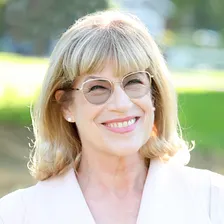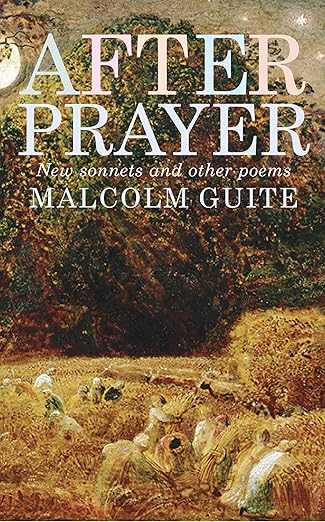 Her Mouth a Palace of Lamps is constructed as a sort of song, with parts corresponding to the Indian raga. After the Prelude and the poem titled “Pakad,” which is a Hindi word signifying a musical phrase, as well as a verb meaning “hold, catch, capture, cling, preserve, protect,” the collection is divided into sections relating to the raga – “Thaat,” the parent scale, “Alaap,” the invocation, a melodic improvisation that introduces the raga, and “Pakad,” which is the essence of the raga – poems that, indeed, capture and preserve memories, or not even “memories” so much as “melodies.”
Her Mouth a Palace of Lamps is constructed as a sort of song, with parts corresponding to the Indian raga. After the Prelude and the poem titled “Pakad,” which is a Hindi word signifying a musical phrase, as well as a verb meaning “hold, catch, capture, cling, preserve, protect,” the collection is divided into sections relating to the raga – “Thaat,” the parent scale, “Alaap,” the invocation, a melodic improvisation that introduces the raga, and “Pakad,” which is the essence of the raga – poems that, indeed, capture and preserve memories, or not even “memories” so much as “melodies.”
Read more →
 We have a copy of The Woman in the Ship by Sapphira Olson to give away!
We have a copy of The Woman in the Ship by Sapphira Olson to give away! There’s a strong sense of place throughout the collection, but with the shading of resigned desperation, almost as keen as describing a memory while it is still being formed. O’Neil often points to the small tortures of acknowledging the sharpness of reality alongside and our shared passivity: “Being lied to isn’t so bad sometimes compared to being aware of how things actually are. You wouldn’t want to go around like that for very long. No one wants to know all the secrets.”
There’s a strong sense of place throughout the collection, but with the shading of resigned desperation, almost as keen as describing a memory while it is still being formed. O’Neil often points to the small tortures of acknowledging the sharpness of reality alongside and our shared passivity: “Being lied to isn’t so bad sometimes compared to being aware of how things actually are. You wouldn’t want to go around like that for very long. No one wants to know all the secrets.” As soon as I started reading Michael Solot’s translation of The Odyssey, I felt instantly connected to the text. It felt so alive, so “modern,” so contemporary, so immediate. It was like reading Homer composed in my native English. Solot uses a conversational register yet it is replete with both elevated and ordinary language with a wide, dynamic range. The story was not only clearly understandable, it was compelling, urging me onward to read to the next chapter. I have never read 400 pages so quickly!
As soon as I started reading Michael Solot’s translation of The Odyssey, I felt instantly connected to the text. It felt so alive, so “modern,” so contemporary, so immediate. It was like reading Homer composed in my native English. Solot uses a conversational register yet it is replete with both elevated and ordinary language with a wide, dynamic range. The story was not only clearly understandable, it was compelling, urging me onward to read to the next chapter. I have never read 400 pages so quickly!  Francis impeccable prose style takes us into the cinematic tour de force of the time and ideas of Sir Thomas Browne that make us appreciate the world we live in with specialized medicine and technological advances. At the same time make us weary of the future by ending on the subject of mortality.
Francis impeccable prose style takes us into the cinematic tour de force of the time and ideas of Sir Thomas Browne that make us appreciate the world we live in with specialized medicine and technological advances. At the same time make us weary of the future by ending on the subject of mortality. Her Mouth a Palace of Lamps is constructed as a sort of song, with parts corresponding to the Indian raga. After the Prelude and the poem titled “Pakad,” which is a Hindi word signifying a musical phrase, as well as a verb meaning “hold, catch, capture, cling, preserve, protect,” the collection is divided into sections relating to the raga – “Thaat,” the parent scale, “Alaap,” the invocation, a melodic improvisation that introduces the raga, and “Pakad,” which is the essence of the raga – poems that, indeed, capture and preserve memories, or not even “memories” so much as “melodies.”
Her Mouth a Palace of Lamps is constructed as a sort of song, with parts corresponding to the Indian raga. After the Prelude and the poem titled “Pakad,” which is a Hindi word signifying a musical phrase, as well as a verb meaning “hold, catch, capture, cling, preserve, protect,” the collection is divided into sections relating to the raga – “Thaat,” the parent scale, “Alaap,” the invocation, a melodic improvisation that introduces the raga, and “Pakad,” which is the essence of the raga – poems that, indeed, capture and preserve memories, or not even “memories” so much as “melodies.” The first three dozen and change poems in The Work Anxiety Poems deal with the “work” aspect: poems that focus on the bar, a setting familiar to readers of Alan Catlin’s work, from his professional career in the hospitality industry. Drunks, cops, killers, lost women, lost men (“Maybe he was just another cruel / joke by God,” he starts “Good Friday”). He’s seen them all. They’re the people you’ve come to expect inhabiting Catlin’s poems.
The first three dozen and change poems in The Work Anxiety Poems deal with the “work” aspect: poems that focus on the bar, a setting familiar to readers of Alan Catlin’s work, from his professional career in the hospitality industry. Drunks, cops, killers, lost women, lost men (“Maybe he was just another cruel / joke by God,” he starts “Good Friday”). He’s seen them all. They’re the people you’ve come to expect inhabiting Catlin’s poems. With each individual section of the poem carefully translated from the original Spanish, the book length poem begins within the space of a home, a room and the day, exploring the natural landscape, a setting based on Zaro’s childhood growing up in rural Northern Spain, and the interrelationship between a father and son.
With each individual section of the poem carefully translated from the original Spanish, the book length poem begins within the space of a home, a room and the day, exploring the natural landscape, a setting based on Zaro’s childhood growing up in rural Northern Spain, and the interrelationship between a father and son. Adés’ latest collection, A Blink of Time’s Eye, strikes me as his best yet, using the kinds of reflection and reminiscence that come with a mature perspective, to find meaning in the present. Like all good poetry it has a way of transcending time even as it is bound by it. A Blink of Times’ Eye is an introspective, lyrical collection that explores the many things that are lost, and what is held through time. The book is structured into four sections, each focused on time in one sense or another – future, past, present and an imagined, conjured past – let’s call it Anemoia – a longing mingling with nostalgia for an alternative pathway – something not bodily experienced.
Adés’ latest collection, A Blink of Time’s Eye, strikes me as his best yet, using the kinds of reflection and reminiscence that come with a mature perspective, to find meaning in the present. Like all good poetry it has a way of transcending time even as it is bound by it. A Blink of Times’ Eye is an introspective, lyrical collection that explores the many things that are lost, and what is held through time. The book is structured into four sections, each focused on time in one sense or another – future, past, present and an imagined, conjured past – let’s call it Anemoia – a longing mingling with nostalgia for an alternative pathway – something not bodily experienced.  Tess Perko talks to her daughter, Rachael Brandt about her debut novel, Learning to Whistle , on writing stories that empower women, her inspiration, her writing process, the hardest part of writing a novel for her, her new work-in-progress, and lots more.
Tess Perko talks to her daughter, Rachael Brandt about her debut novel, Learning to Whistle , on writing stories that empower women, her inspiration, her writing process, the hardest part of writing a novel for her, her new work-in-progress, and lots more.  The appeal of the book as poetic material has its good points: Good poetic diction, deep thought, formal structure, well developed themes, knowledge of the subject matter, good organization. The weaker points are these; Malcolm Guite does not seem to be a gifted rhymer or one who can rhyme without any difficulty giving perfect rhymes.
The appeal of the book as poetic material has its good points: Good poetic diction, deep thought, formal structure, well developed themes, knowledge of the subject matter, good organization. The weaker points are these; Malcolm Guite does not seem to be a gifted rhymer or one who can rhyme without any difficulty giving perfect rhymes. Working in the spirit of haikyo exploration culture, which emphasizes observation and documentation, Kuyatt builds poems that revel in specificity: a bowling alley with one hundred and eight unused lanes, a mostly shuttered mall in which a man tends aloe vera. Reading these poems through the lens of Kuyatt’s linked interests—meaning-making and ephemerality—we can appreciate why one might garden in a failing space.
Working in the spirit of haikyo exploration culture, which emphasizes observation and documentation, Kuyatt builds poems that revel in specificity: a bowling alley with one hundred and eight unused lanes, a mostly shuttered mall in which a man tends aloe vera. Reading these poems through the lens of Kuyatt’s linked interests—meaning-making and ephemerality—we can appreciate why one might garden in a failing space.